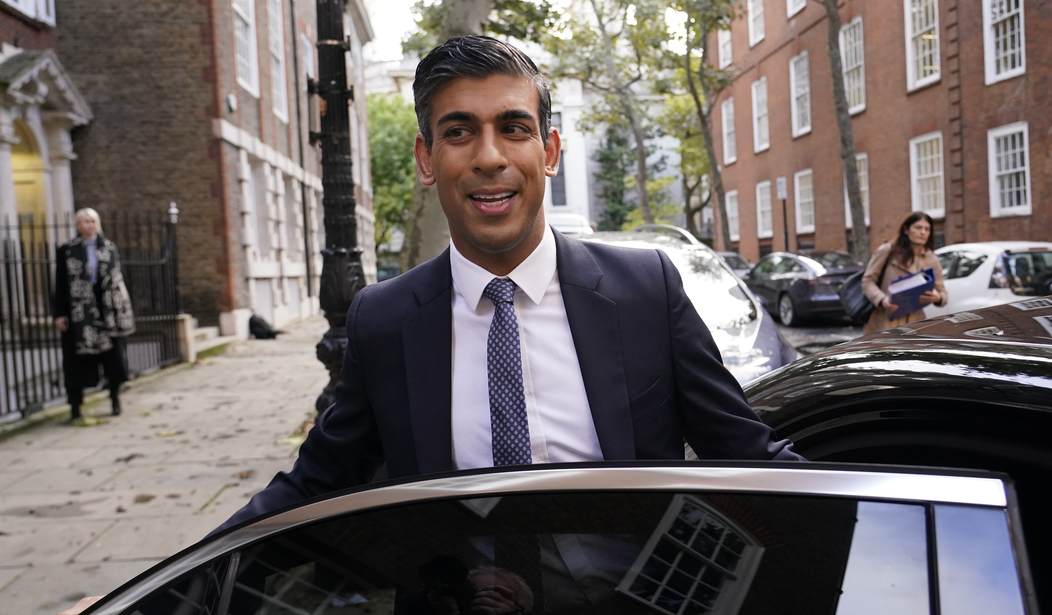If you live in the United States, you are likely already aware of the levels the current White House administration has gone to in an effort to censor any speech that is seen as being unfavorable toward Joe Biden or his policies. But it can be easy to lose track of similar efforts at censorship in other countries. The first one that comes to mind is, of course, China, where every aspect of citizens’ private lives is monitored and controlled. But Great Britain recently tried to get in on this action with legislation that would force tech companies and social media platforms to remove “legal but harmful” content from their sites. Fortunately, the outcry against this measure among the public and many members of Parliament was of sufficient volume that the proposal was dropped this week. (Associated Press)
The British government has abandoned a plan to force tech firms to remove internet content that is harmful but legal, after the proposal drew strong criticism from lawmakers and civil liberties groups.
The U.K. on Tuesday defended its decision to water down the Online Safety Bill, an ambitious but controversial attempt to crack down on online racism, sexual abuse, bullying, fraud and other harmful material.
Similar efforts are underway in the European Union and the United States, but the U.K.’s was one of the most sweeping. In its original form, the bill gave regulators wide-ranging powers to sanction digital and social media companies like Google, Facebook, Twitter and TikTok.
The proposed legislation has been modified as noted above, but still contains some guidelines regarding content moderation and stiff penalties for companies that fail to follow those rules. Of course, it’s still left up to the enforcers to determine what qualifies as “harmful” information.
It’s curious how the British government would feel that they needed a law to force platforms like Facebook, Google, and (until recently) Twitter to censor politically disfavored speech. They seem to do it with abandon all on their own and they even willingly coordinated with the Biden administration to engage in censorship as robustly as possible. Rather than passing a law, the PMs could probably just pick up a phone and call Zuckerberg’s people with a list of naughty words and topics. The content would likely disappear overnight.
As with all of the examples of this that we’ve already seen, the main problem with this form of “protective measures” comes down to who gets to define what qualifies as “misinformation” or “disinformation.” Such decisions inevitably wind up being based on politics rather than science. Any online suggestion that medical “gender transition treatments” are permanently harmful to children can still get you labeled as transphobic and banned, despite the growing body of evidence that it’s absolutely true. Other examples abound.
Too many governments now seem eager to boldly leap onto ground where they would previously have feared to tread. How bad could it get? Look no further than China, as I already mentioned above. This week they instituted new rules that will make the online world even more tightly policed for “wrongthink.”
Internet users in China will soon be held liable for liking posts deemed illegal or harmful, sparking fears that the world’s second largest economy plans to control social media like never before.
China’s internet watchdog is stepping up its regulation of cyberspace as authorities intensify their crackdown on online dissent amid growing public anger against the country’s stringent Covid restrictions.
Yes, you read that correctly. Online posts criticizing the government’s lockdowns and “zero COVID” policies were already forbidden in China. But now people will be held liable and punished for even “liking” someone else’s post that is critical of Beijing. And we’re not talking about a small fine to pay as the penalty. People in China wind up disappearing, sometimes never to be seen again.
Would you like to see something like that here in the United States? If not, you might want to work harder to call out the censorship taking place in Washington and put an end to it. Because too many of the clowns in the swamp are clearly looking at China and wondering how much of that they might be able to get away with here.







Join the conversation as a VIP Member